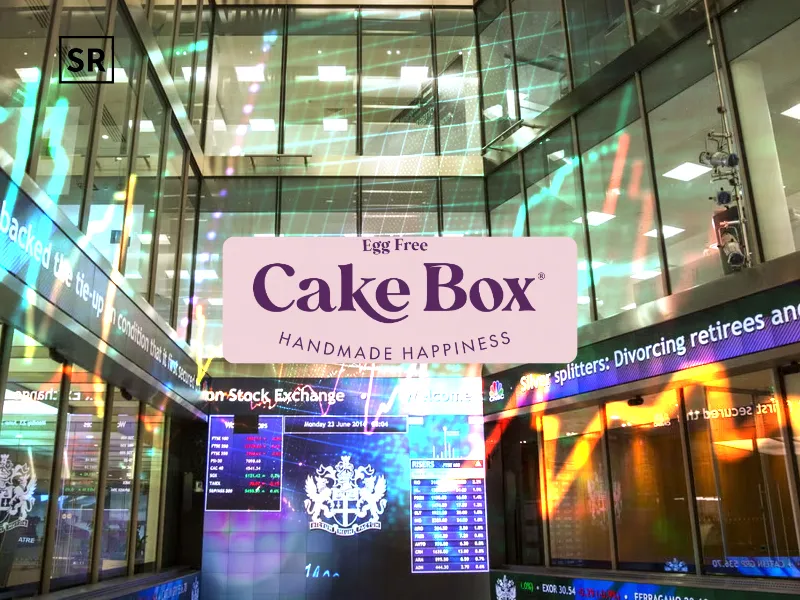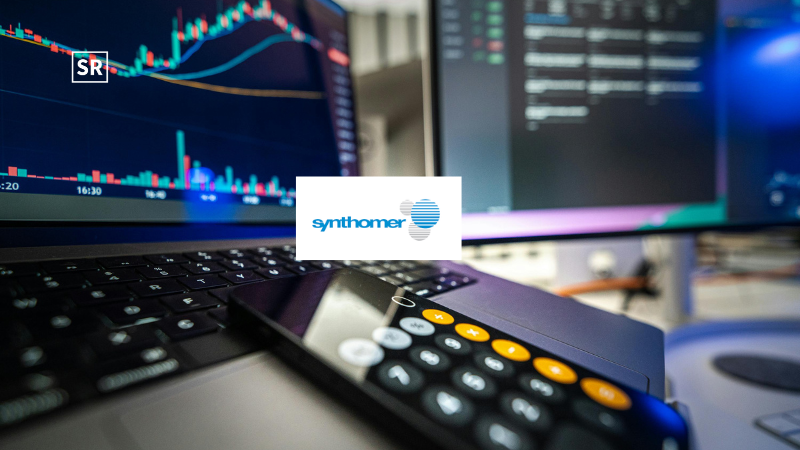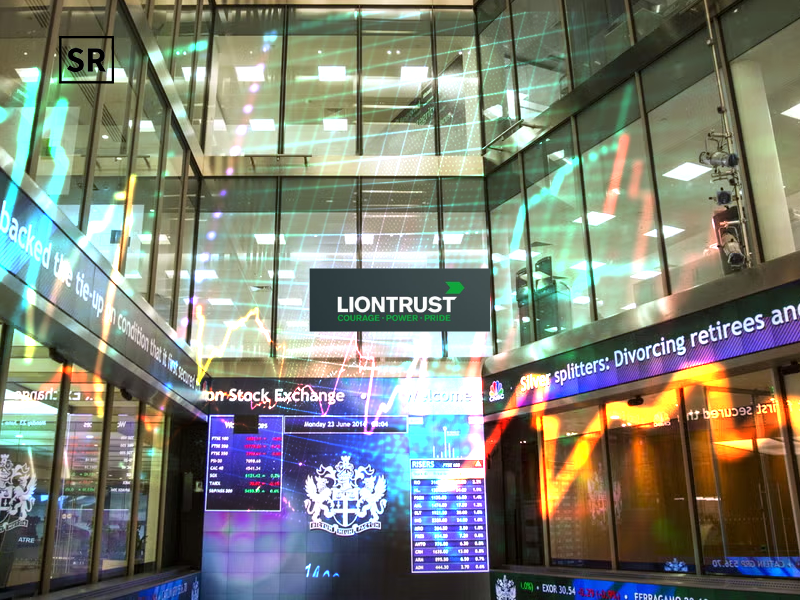
Beginning your investment journey can feel confusing, especially with so many stocks to choose from. That’s why building a starter stock portfolio is important. It focuses on strong, trusted companies and simple strategies that help beginners grow wealth steadily while keeping risks low.
One of the easiest and safest ways to start is by investing regularly in low-cost index funds. These funds track the market and give you exposure to many companies at once. Since the stock market is highly competitive, even expert fund managers struggle to beat it consistently. For beginners, index funds provide a simple path to long-term growth.
At the same time, investors can add a few blue-chip stocks — companies with solid financials, strong cash flow, and products or services that people rely on every day. These businesses have stood the test of time and offer a margin of safety for new investors.
As Warren Buffett wisely said, “It’s better to buy a great company at a fair price than a fair company at a great price.” Keeping this in mind, beginners should look for quality businesses at reasonable prices.
RECOMMENDED FOR YOU

Henof.com Tech & Gaming: Your Reliable Hub for the Latest in Technology and Gaming
Kailee Rainse
Oct 15, 2025

Shell Share Price Prediction (2025-2030): Expert Analysis & Predictions
Kailee Rainse
Mar 26, 2025

Why 5StarsStocks.com Value Stocks Can Be Your Key Advantage
Kailee Rainse
Dec 13, 2025
10 Best Stocks To Buy
Fastenal Co.
Fastenal is a well-known industrial distributor that provides fasteners, safety gear, tools, and a wide range of other products, along with supply chain solutions tailored for manufacturing and non-residential construction companies. What makes Fastenal stand out is its unique approach to customer service. Instead of relying heavily on traditional branches the company has been expanding its onsite distribution model, placing locations directly at or near customer facilities. This setup not only improves efficiency but also builds stronger relationships with clients by ensuring quick access to essential supplies.
According to analyst Kristina Ruggeri this strategy has been a key driver of growth, helping Fastenal counter the negative effects of inflation on profit margins. As the broader industrial and construction markets continue to recover, Fastenal is well-positioned to capture a greater share of the market from its competitors. Ruggeri is optimistic about the company’s shift away from smaller brick-and-mortar branches toward serving larger accounts with higher demands. By focusing on scalability and customer convenience Fastenal is transforming its business model for long-term success. This forward-looking strategy makes the company attractive for investors seeking exposure to industrial growth and supply chain resilience.
General Motors Co.
General Motors (GM) the largest U.S. automaker, continues to play a key role in the evolving automotive landscape. In December 2024 the company announced a strategic shift in its autonomous vehicle technology, moving away from the costly pursuit of robotaxis to focus instead on personal vehicles. This transition is expected to significantly reduce expenses while also opening the door for greater capital returns to shareholders.
Despite its leadership position GM shares have lagged in 2025 due to investor concerns about the potential impact of auto tariffs on sales and profitability. These headwinds have weighed on sentiment but analysts see reasons for optimism. Bill Selesky of Argus believes GM remains attractively valued at current levels and is well-equipped to weather near-term challenges. He argues that GM’s strong fundamentals, combined with its ability to adapt to shifting market conditions, position the company to emerge stronger in the long run.
Argus maintains a "buy" rating on GM stock, with a price target of $60. With shares recently closing at $52.47 the outlook suggests meaningful upside potential. As GM continues to streamline operations and refocus its innovation strategy, it could offer investors both resilience and growth opportunities.
Ameriprise Financial Inc.
Ameriprise Financial (AMP) is a leading diversified financial services company offering insurance, annuities, wealth management, and asset management solutions. With its strong portfolio of services Ameriprise has delivered consistent growth across multiple business segments. Analyst Kevin Heal notes that the company has reported impressive revenue growth in recent quarters, reflecting both solid execution and favorable market conditions. Looking ahead, Ameriprise appears well-positioned for the second half of 2025 and beyond, supported by easing tariff uncertainties and lighter regulatory pressures, which should further enhance its operating environment.
Long-term growth prospects also look promising. Heal highlights three key drivers: the expansion of Ameriprise’s network of financial advisors, an increase in fee-based accounts, and continued revenue gains from its global asset management arm, Columbia Threadneedle. Together, these factors should support sustained growth in earnings and cash flow. At the same time, Ameriprise remains committed to shareholder returns through ongoing capital distributions, which add further appeal for investors.
Argus Research maintains a "buy" rating on Ameriprise, with a price target of $568. With shares recently closing at $508.43, the stock offers attractive upside potential, making it a compelling choice for long-term investors seeking growth and income.
Apple Inc.
Apple Inc. (AAPL), the company behind iconic products such as the iPhone, iPad, Mac, and the App Store, has grown into the largest publicly traded firm in the United States, with a market capitalization of about $2.4 trillion. Founded in 1976 by Steve Jobs, Steve Wozniak, and Ron Wayne, Apple has built its reputation on innovation consistently updating its product lineup while expanding into services like digital payments, streaming and cloud solutions. This ability to reinvent and diversify has allowed the company to not only meet but frequently exceed sales and profit expectations.
Financially Apple continues to demonstrate remarkable strength. As of March 2022 the company reported a trailing 12-month operating margin of 31% and generated $25.7 billion in free cash flow. Despite these solid fundamentals, Apple’s stock price was down 17.9% for the year through July 12, largely due to broader market weakness in the tech sector. For long-term investors, this dip may represent a rare opportunity to acquire shares at an attractive valuation. With its strong brand loyalty, innovative pipeline and consistent profitability, Apple remains one of the best stocks to buy for those seeking stability and growth in their portfolio.
Visa, Inc.
Visa Inc. (V) is considered one of the best stocks for beginner investors, given its strong global presence and straightforward business model. As the world’s largest publicly listed credit services company Visa holds a market value of nearly $470 billion and operates in more than 200 countries and territories. With 3.6 billion Visa cards currently in circulation, the company plays a vital role in global commerce.
Every time a Visa card is swiped or used online, Visa earns a small percentage of the transaction. This makes its revenue stream consistent, scalable, and resilient. As economies continue shifting toward digital and cashless payments, Visa is well-positioned to benefit from this long-term trend. The company’s growth prospects remain solid with low overall risk, making it highly attractive for new investors.
Additionally, Visa currently trades at a discount compared to its main competitor, Mastercard Inc. (MA). With a forward price-to-earnings ratio below 26, versus Mastercard’s 35, Visa offers a more affordable entry point while maintaining strong profitability and global reach. For investors seeking stability, growth potential and exposure to the expanding cashless economy, Visa stands out as one of the best stock options to consider.
MSFT (Microsoft Corporation.)
Microsoft (MSFT) remains one of the strongest stocks to buy, backed by its global presence and diverse product portfolio. While Apple dominates the smartphone market, Microsoft has carved its own space in computer hardware and software, with brands and services recognized worldwide. Its offerings include Windows, Office 365, Edge browser, LinkedIn, Surface Pro devices, OneDrive, Xbox consoles and iconic gaming titles like Halo and Gears of War. These products enjoy steady demand, reinforcing Microsoft’s leadership in technology.
Although Microsoft’s stock has seen a 24.6% year-to-date decline the company’s fundamentals remain strong, making this a potential buying opportunity for long-term investors. Microsoft continues to dominate the desktop PC market while strategically transitioning to cloud computing as its primary growth driver. Through its subscription-based model, particularly with Azure cloud services and Office 365, Microsoft is positioned to generate recurring revenue and higher margins.
Additionally, Microsoft’s gaming division is expanding rapidly, with increased engagement supported by the pandemic-driven surge in digital entertainment. With its diversified business model, strong global brand and focus on high-growth areas like cloud and gaming, Microsoft combines resilience with long-term profitability. For investors, MSFT offers both stability and significant upside potential in the evolving tech landscape.
Bank of America Corporation
Bank of America (BAC) stands out as one of the most attractive stock picks for beginners. As the second-largest publicly traded bank in the U.S., it boasts a market capitalization of nearly $400 billion. One of the key advantages for BAC is the current environment of rising interest rates. Banks typically profit in such conditions because the spread between what they pay on deposits and what they earn from loans expands, directly boosting profitability.
Beyond interest rates Bank of America also benefits from favorable macroeconomic conditions. A robust housing market strong employment levels, and healthier consumer balance sheets all provide a solid foundation for continued growth. The bank’s credit quality is also impressive with its net charge-off ratio a measure of unpaid or defaulted loans—hovering near historic lows at just 0.2%.
From an investment perspective BAC offers a compelling mix of stability and growth potential. It pays a modest yet consistent dividend yield of 1.7% trades at a reasonable price-to-earnings ratio of around 15, and faces no significant threats in the near term. For novice investors seeking long-term reliable growth in their portfolio, Bank of America remains a smart and resilient choice.
The Coca-Cola Company
Coca-Cola is one of Warren Buffett’s longest-standing investments, and its resilience explains why it remains a core holding. As one of the world’s most recognized beverage companies Coca-Cola offers around 4,100 drinks under nearly 500 brands, including Coca-Cola, Diet Coke, Coke Zero, Sprite, Fanta, Minute Maid, and Powerade. This wide portfolio ensures the company remains relevant across generations and consumer preferences. Recognized as one of the best stocks to buy, Coca-Cola continues to demonstrate both stability and growth potential.
What truly sets Coca-Cola apart is its unmatched global presence. With 250 bottling partners, 900 manufacturing facilities, and a distribution reach spanning 27 million retail outlets worldwide, its products are consumed daily in virtually every corner of the globe. Strong performance in markets such as Europe, Latin America, Asia-Pacific and Africa highlights the company’s international dominance.
Coca-Cola also appeals to investors as a reliable dividend stock. With a low beta of 0.7 it offers reduced volatility, while a 2.74% dividend yield provides steady income. The company’s financial strength is clear boasting an operating margin of 27.8% and a return on equity of 45.6% as of March. These factors make Coca-Cola a consistent performer and a smart addition to any long-term portfolio.
Alphabet, Inc.
Alphabet Inc., the parent company of Google, is far more than just a search engine powerhouse. Beyond Google Search, Alphabet owns an extensive portfolio of products and services that are part of everyday life, including the Android operating system, Google Chrome OS, AdWords, AdSense, and the Google Play Store. The company also produces hardware such as Google Home, Pixel smartphones, Chromebooks and Google Wi-Fi, making its presence felt across both software and hardware ecosystems. While Apple dominates the tech industry by market capitalization, Alphabet leads in terms of ubiquity, with its services used by billions worldwide. This broad reach makes Alphabet one of the most reliable stocks to buy.
In its first-quarter 2022 results Alphabet surpassed analyst expectations by reporting significant growth in revenue, operating cash flow, and earnings per share. Demonstrating confidence in its long-term outlook, the company announced a 20-for-1 stock split scheduled for July 15. With shares currently trading above $2,000, the split will make Alphabet stock more affordable and accessible to everyday investors, widening its investor base. Combining strong financial performance, global dominance, and constant innovation, Alphabet continues to be one of the best long-term investment opportunities in the technology sector.
Berkshire Hathaway
Berkshire Hathaway, under the leadership of Warren Buffett and Charlie Munger, has grown into a global conglomerate with investments spanning insurance, energy, utilities, railroads, food, consumer goods and financial services. By owning Berkshire shares, investors gain the advantage of having their money managed by two of the most respected investors in history, making it one of the best stocks to buy.
The company’s strength lies in its disciplined investment strategy, particularly during market downturns. While broader markets struggle, Berkshire often seizes opportunities to acquire strong companies at discounted prices. In 2022 for example Berkshire shares declined just 7.3%, far outperforming the S&P 500’s 19.9% drop. Buffett’s notable buys this year include Occidental Petroleum (OXY) HP Inc. (HPQ), Citigroup (C) and Paramount Global (PARA). With its diversified portfolio and proven long-term strategy Berkshire Hathaway remains a resilient and attractive choice for investors seeking stability and growth.
Conclusion
Building a strong starter portfolio is about more than just picking stocks
it’s about laying a foundation for long-term financial success. Beginners should focus on companies with proven track records resilient business models, and consistent performance through different market cycles. Stocks like Apple, Microsoft, Alphabet, Coca-Cola, Berkshire Hathaway and Bank of America showcase stability, innovation and the ability to adapt to changing economic conditions. Each represents a different sector, providing diversification and reducing overall risk for new investors.
At the same time, companies such as Fastenal, General Motors, Ameriprise Financial and Visa highlight opportunities in industrials, automotive, financial services, and digital payments sectors that continue to evolve and create growth opportunities. Adding such blue-chip and well-established businesses to a portfolio can provide steady returns while allowing beginners to gain confidence as they learn about the market.
Ultimately, investing success comes from patience, consistency, and discipline. Regular contributions to index funds or carefully chosen stocks, combined with a long-term outlook can help build wealth steadily. By prioritizing quality over speculation and focusing on financially sound businesses beginner investors can reduce risk while positioning themselves for growth. A thoughtfully constructed starter portfolio is the first step toward financial independence.


 Follow us
Follow us Follow us
Follow us











